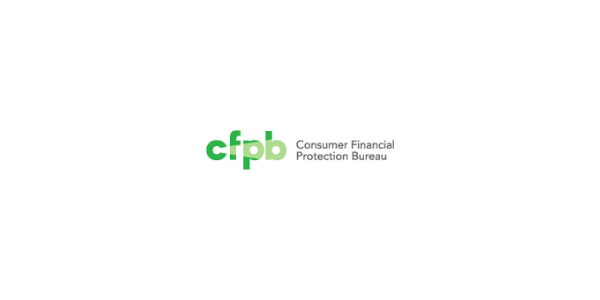
Fears That Fed’s Actions Could Trigger A Recession

Freddie Mac, CoreLogic economists say Fed efforts could affect mortgage rates
- Effects of Fed's cooling the economy may not be felt until 2024.
- Recession risks have increased.
- Dow Jones has fallen over 2000 points since Fed raised rates.
By DOUG PAGE, Staff Writer, National Mortgage Professional
With the yield on the 10-year Treasury Note hovering around 3%, two industry economists predict the Fed’s attempts to push down inflation will make for a hard slog with implications not only for the economy and a possible recession, but also for the housing market and, possibly, mortgage rates.
“The Fed will have trouble putting the inflation genie back in the bottle,” said Frank Nothaft, an economist with financial services firm CoreLogic. “It’s running hot, and it might not be until 2024 before the Fed is able to be successful.”
With inflation currently at 8.5%, a number that’s scheduled to be updated this week by the U.S. Bureau of Labor Statistics, Nothaft is apprehensive the medicine the Fed is doling out to tame inflation – increasing the Federal Funds rate multiple times this year – might produce an unintended side effect.
“It could trigger an economic slowdown and a recession,” he warned.
Nothaft also thinks inflation could possibly jump by as much as another point. “It could crest at 9 or 9.5% before starting to come down, hopefully in the third quarter,” he said.
As for the results the Fed is taking to tame inflation, Freddie Mac’s Deputy Chief Economist Len Kiefer is worried.
“Our baseline economic forecast for 2023 does not forecast a recession; however, given recent economic indicators recession risks have increased,” he said.
The five leading economic indicators include the Gross Domestic Product, down 1.4% in April; unemployment, which remains unchanged at 3.6%; inflation, which stands at 8.5%, up from 7.9% a year ago; the Purchasing Managers index, which dropped 55..4 from 57.1; and, notes from the Federal Open Market Committee’s (FOMC) March meeting, which suggested the Fed was worried about inflation. The notes from last week’s FOMC’s meeting will not be released until later this month.
The FOMC hiked the Federal Funds rate, the interest rate that banks charge when lending to one another overnight, by 50 basis points last week, the second time it raised the rate this year. The FOMC is expected to increase it again during its June and July meetings, likely by as much as 50 basis points each time.
John C. Williams, president and CEO of the New York Federal Reserve, defended the FOMC’s actions in a speech at an international economic symposium in Germany today. He said in prepared remarks, “With clear signs of demand exceeding supply and an economy running too hot, the primary focus of monetary policy is to turn down the heat and restore price stability.”
He added, “Although we are facing highly unusual and challenging circumstances, I am confident we have the right tools to achieve our goals. In fact, we have an advantage over previous inflationary episodes: Our monetary policy tools are especially powerful in the very sectors where we see the greatest imbalances and signs of overheating—such as durable goods and housing. Higher interest rates will cool demand in these rate-sensitive sectors to levels better aligned with supply. This will also turn down the heat in the labor market, reducing the imbalance between job openings and available labor supply.” Williams said housing is one of the three major imbalances contributing to an overheating economy and high inflation.
While initial reaction to last week’s rate hike appeared to be positive, with the yield on the 10-year Treasury remaining under 3% and all three stock market indexes increasing sizably, that changed last Thursday, when the yield jumped over 3% and remained there, helping to push down all three stock market indexes, with the Dow Jones Industrial Average, dropping the most, by more than 1,000 points. The DJIA has fallen nearly 2,000 points since last Thursday. The 10-year Treasury bond yield dipped Monday but remained above 3%.
The 10-Treasury Note yield is not only indicative of where mortgage rates are heading but is also a signal of investor confidence. When the note’s yield increases, its price drops, indicating that investor confidence is on the wane.
“An increasing yield isn’t good for stock values,” Nothaft said, signaling a decrease in the value of future corporate profits.
“The stock market is a forward discounting mechanism for what the future is going to look like,” said Freddie Mac’s Kiefer. “If you look at where the economy is right now, the Labor Department (on Friday) reported that another 400,000 plus jobs were created in April. Unemployment remains very low, so the economy’s current status is not being reflected in asset markets.
“Earnings are up but there’s a lot of the concern where profits are headed in the next year or two,” he added.
While the Federal Funds rate doesn’t directly affect mortgages, it’s a sign of whether credit is easing or tightening.
Since the March FOMC meeting, when the Federal Funds rate was increased by 25 basis points, mortgage rates have been on steady rise, with the 30-year and 15-year fixed rates moving from 4.16% and 3.39% to 5.27% and 4.52%, respectively, last week, information from Freddie Mac shows.
“We haven’t seen this pace of increase in mortgage rates since the 1980s,” said Kiefer. “That creates a lot of challenges for folks active in the housing market and thinking about buying a home that may throw the calculus off.
“They’ll find what they can afford may be very significantly diminished given how fast rates have moved higher and, typically, in the housing market, that leads to a slowdown in home sales and a cooldown in house prices,” he added.
Keifer expects 30-year fixed mortgage rates to increase but remain under 6% -- at least for this year.
Keifer also says stock market volatility can suggest a higher likelihood of an economic downturn.
“Though the stock market is notoriously fickle, note Paul Samuelson’s quotation that the stock market predicted five out of the past nine recessions,” he said. In 1970, Samuelson became the first U.S. economist to win a Nobel Prize.
“We don’t know how successful the Fed is going to be,” Keifer added about the FOMC’s actions to bring inflation down. “Some people talk about a soft landing, which is can the Fed successfully get inflation down without causing a recession? It’s possible but it will require some luck and it will require the economy not getting hit by adverse shocks.”
He also noted that “many millions of Americans have locked in very low mortgage interest rates, so even if the market is very volatile and rates go up for existing homeowners, they’re insulated from all of that.”




